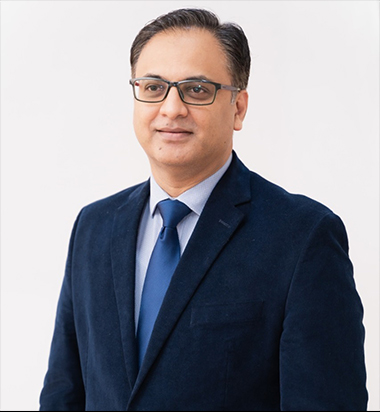- ABOUT US
- SERVICES
- NEUROLOGY-NEUROPHYSIOLOGY
- ANGIOGRAPHY
- OUTREACH
- HEALTH, WELLNESS AND LIFESTYLE CLINIC
- HOME SERVICES
- ONCOLOGY (CANCER FACILITY)
- ORTHOPEDICS
- OUTPATIENT CLINICS
- OUTREACH PACKAGES
- VACCINATION CENTER
- INFECTION CONTROL UNIT
- INTERVENTIONAL RADIOLOGY
- PAEDIATRICS
- PHARMACY
- PHYSIOTHERAPY
- PULMONARY FUNCTION TESTING (PFT)
- CARDIAC ARRHYTHMIA SERVICES
- CLINICAL LABORATORIES
- CRITICAL CARE
- DENTISTRY
- DIALYSIS
- KIDNEY TRANSPLANT
- RADIOLOGY
- EMERGENCY
- ENDOSCOPY
- ENT
- LITHOTRIPSY
- LIVER TRANSPLANT
- SPEECH LANGUAGE THERAPY
- SURGERY AND ALLIED
- MEDICINE AND ALLIED
- GYNAECOLOGY AND OBSTETRICS
- NUCLEAR MEDICINE
- DERMATOLOGY
- RHEUMATOLOGY
- BARIATRIC SURGERY
- FOR PATIENTS
- FOR DOCTORS
- APPOINTMENT
- ONLINE REPORT
- LOCATIONS
- CAREER
- CONTACT US
PULMONARY FUNCTION TESTING (PFT)
THE MEDICAL PULMONARY FUNCTION TESTING (PFT)
THE MEDICAL PULMONARY FUNCTION TESTING (PFT)
Pulmonary Function Tests provide a comprehensive assessment of the diseases of the lungs and airways. These tests are usually done to diagnose lung diseases, identify potential causes for shortness of breath, assess the effects of medications you may be taking or chemicals you may be exposed to, and measure the functioning of the lungs before a surgery.
- Six-Minute Walk Test: The test measures the impact on your body when you walk on a flat surface for 6 minutes, essentially evaluating your body’s response to exercise.
- Body Plethysmography: Body Plethysmography (or body box) is a very sensitive lung measurement used to detect lung health that might be missed with conventional pulmonary function tests. Using body plethysmography, doctors can examine the lungs’ resistance to airflow, distinguish between restrictive and obstructive lung diseases, determine the response to bronchodilators and determine bronchial hyper reactivity in response to drug (pharmacological) hyperventilation.
- Bronchodilator Reversibility: The test uses a spirometer (device to record the air inhaled and exhaled) and a bronchodilator (medical drug to dilate the bronchi and bronchioles) to diagnose whether a patient has asthma or chronic obstructive pulmonary disease (COPD).
- Lung Volumes and Transfer Factor: The test measures the ability of the lungs to transfer oxygen from the lungs to the bloodstream. Lung volume measurement permits the detection of restrictive lung disease. In this type of disease a person cannot inhale a normal volume of air. Restrictive lung disease may be caused by inflammation or scarring of the lung tissue or by abnormalities of muscles.
- Diffusion Lung Capacity (DLCO): Diffusing lung capacity helps measure the ability of your lungs to transfer oxygen from the lungs to the blood. This test is valuable for the diagnosis of patients with restrictive lung disease. It may also be used to identify the effects of certain types of drug therapies.
- Maximal Inspiratory and Expiratory Pressures (MIP/MEP): The test helps in evaluating the strength of the respiratory muscles.
- Pulse Oximetry: The test helps in monitoring a person’s oxygen level (oxygen saturation) in the blood, especially in the body parts furthest from the heart.
How to prepare for the test?
- Patients must make an appointment.
- Bring your doctor’s prescription to the appointment.
- Do not eat a heavy meal before coming for the test.
- Avoid consuming caffeinated drinks and food.
- You may be asked to stop taking your prescribed bronchodilator before the test. Please confirm this with your doctor.
- Bring a list of all the medications that you may be taking.
- Inform the doctor if you are having chest pains, or have recently experienced a heart condition.
- Do not smoke or exercise 6 hours before the test.
- Wear loose and comfortable clothing to help you breathe easily.
BOOK AN APPOINTMENT
Contact our friendly Reception Staff With any Inquiry.
Meet the Oncology Leadership Team

Dr. Adnan A Jabbar
Professor, Chairman of Oncology Department.

Dr. Adnan A Jabbar
Professor, Chairman of Oncology Department.

Dr. Adnan A Jabbar
Professor, Chairman of Oncology Department.

Dr. Adnan A Jabbar
Professor, Chairman of Oncology Department.
Video Gallery




